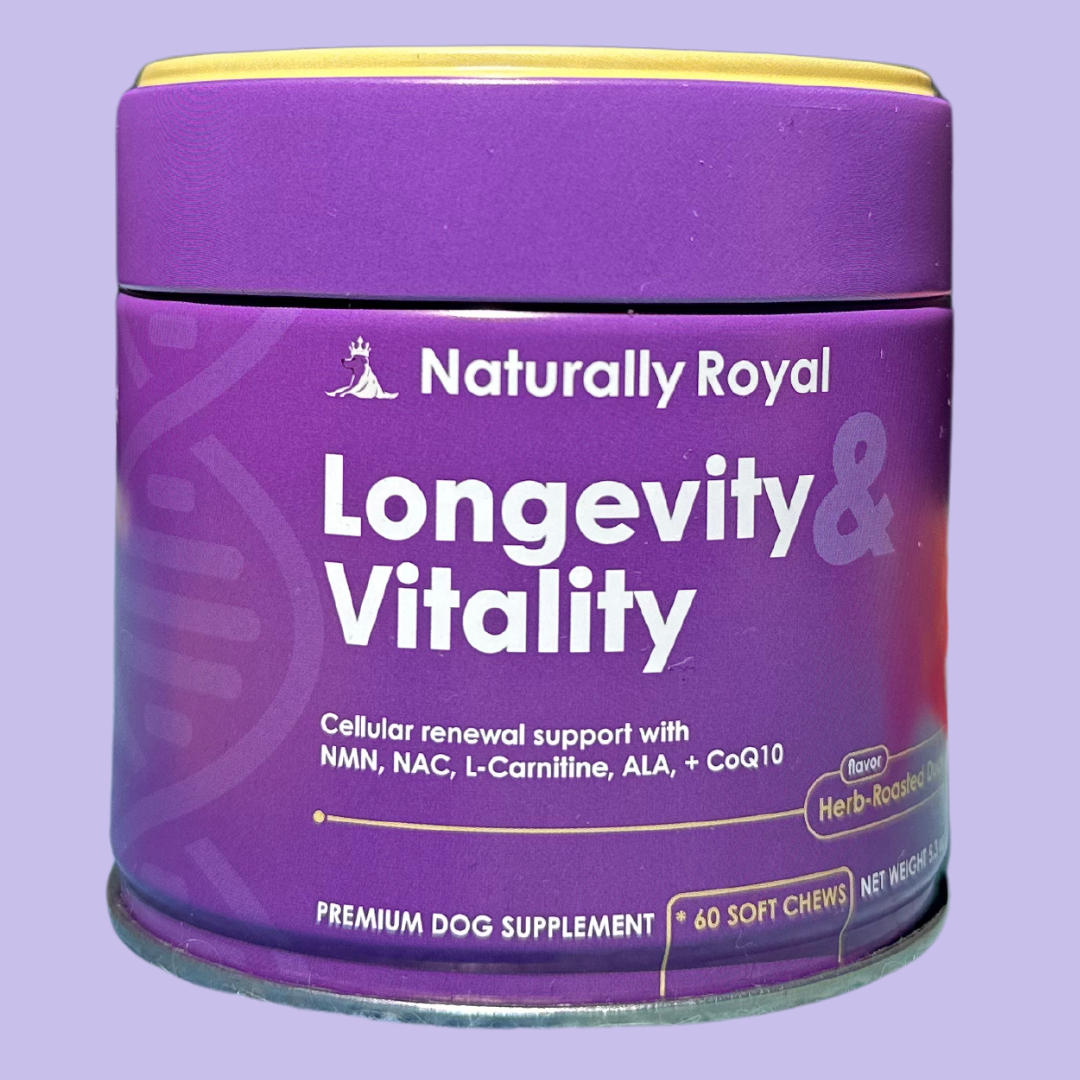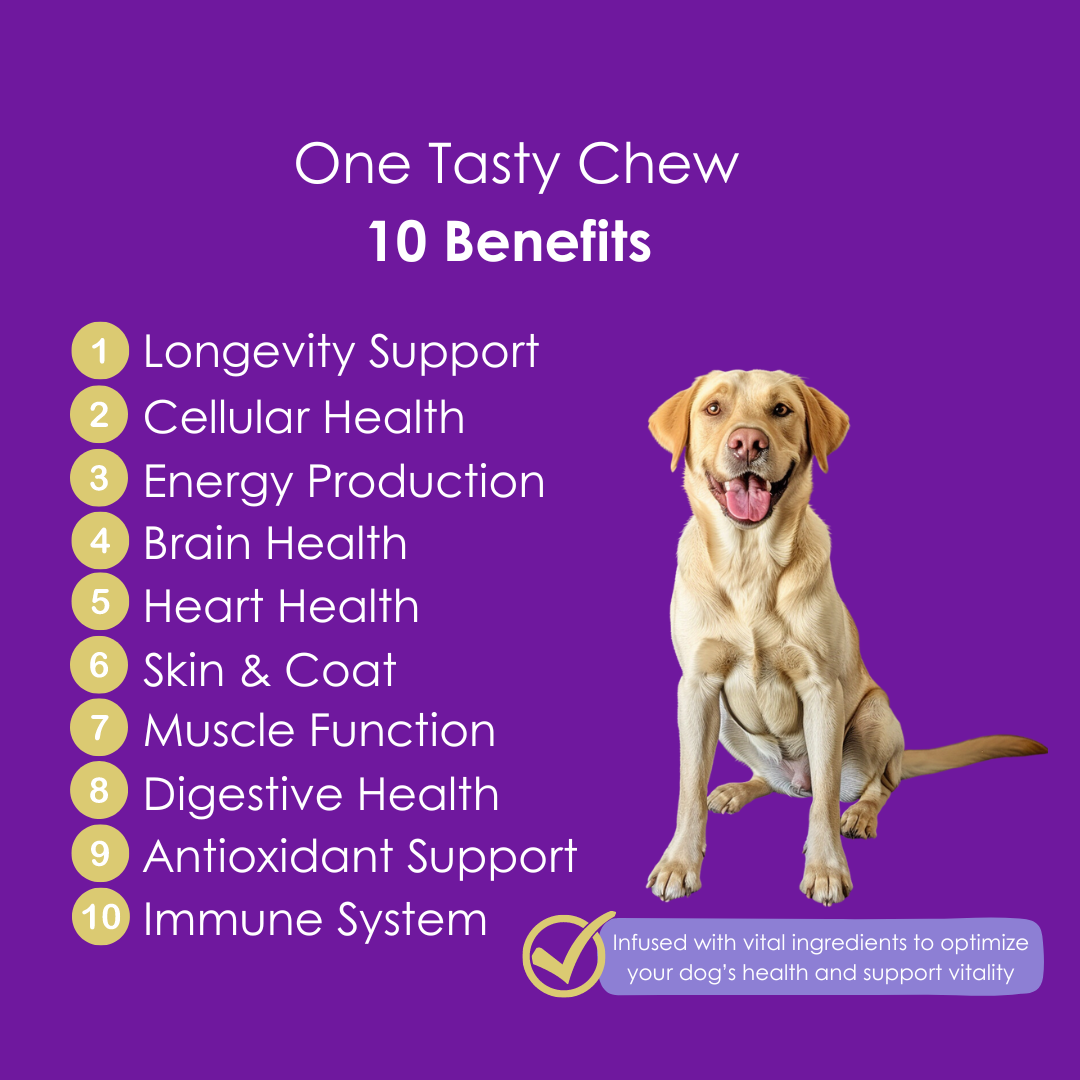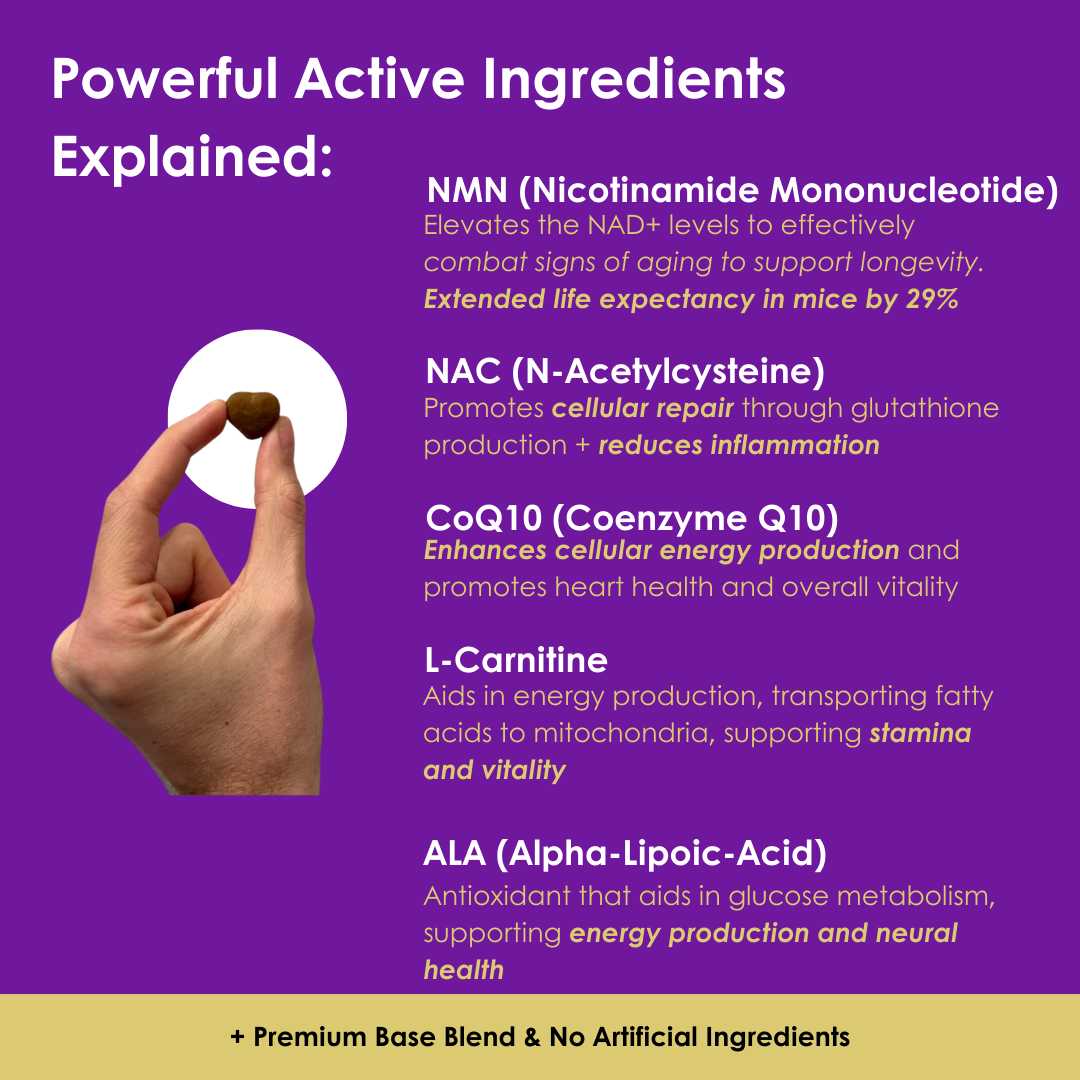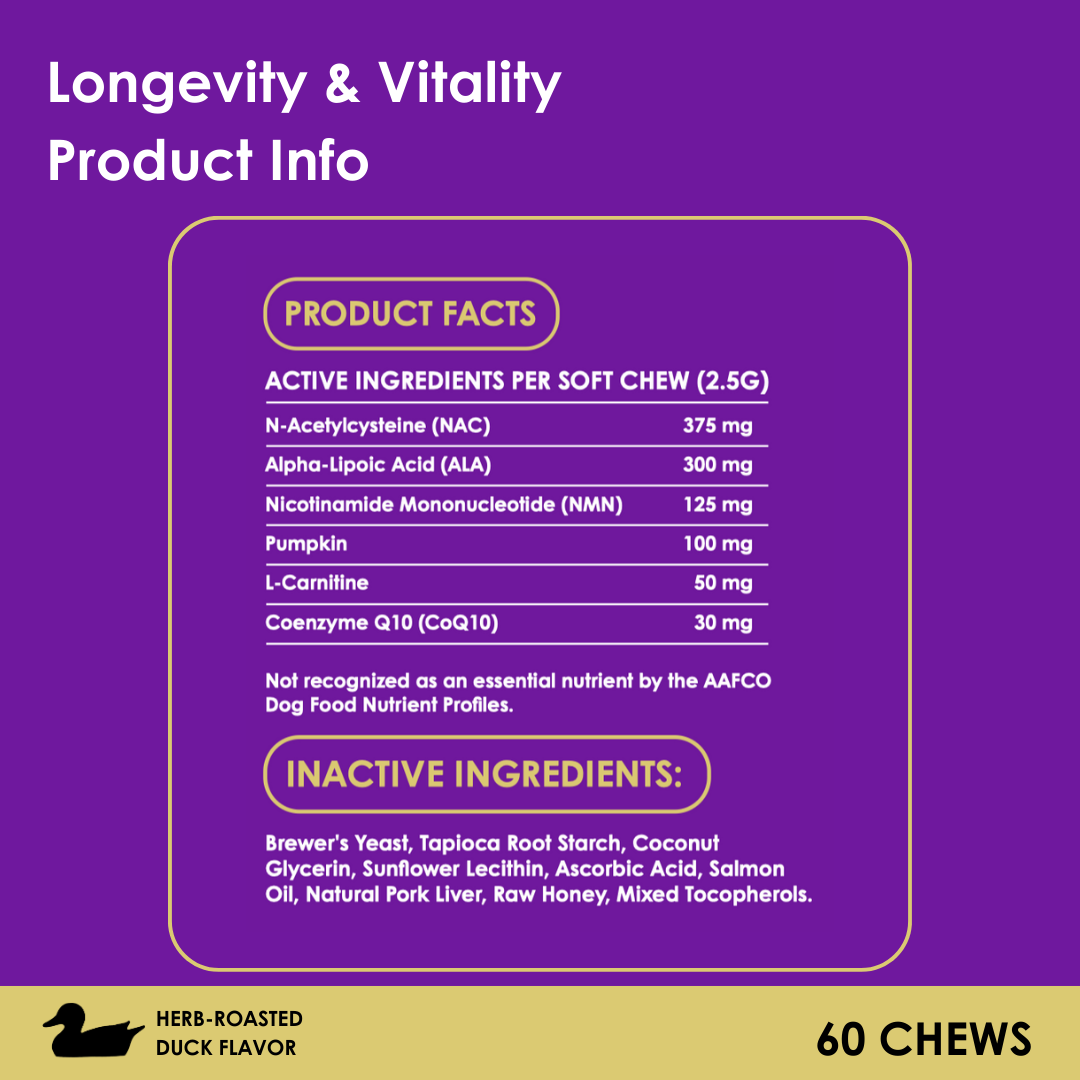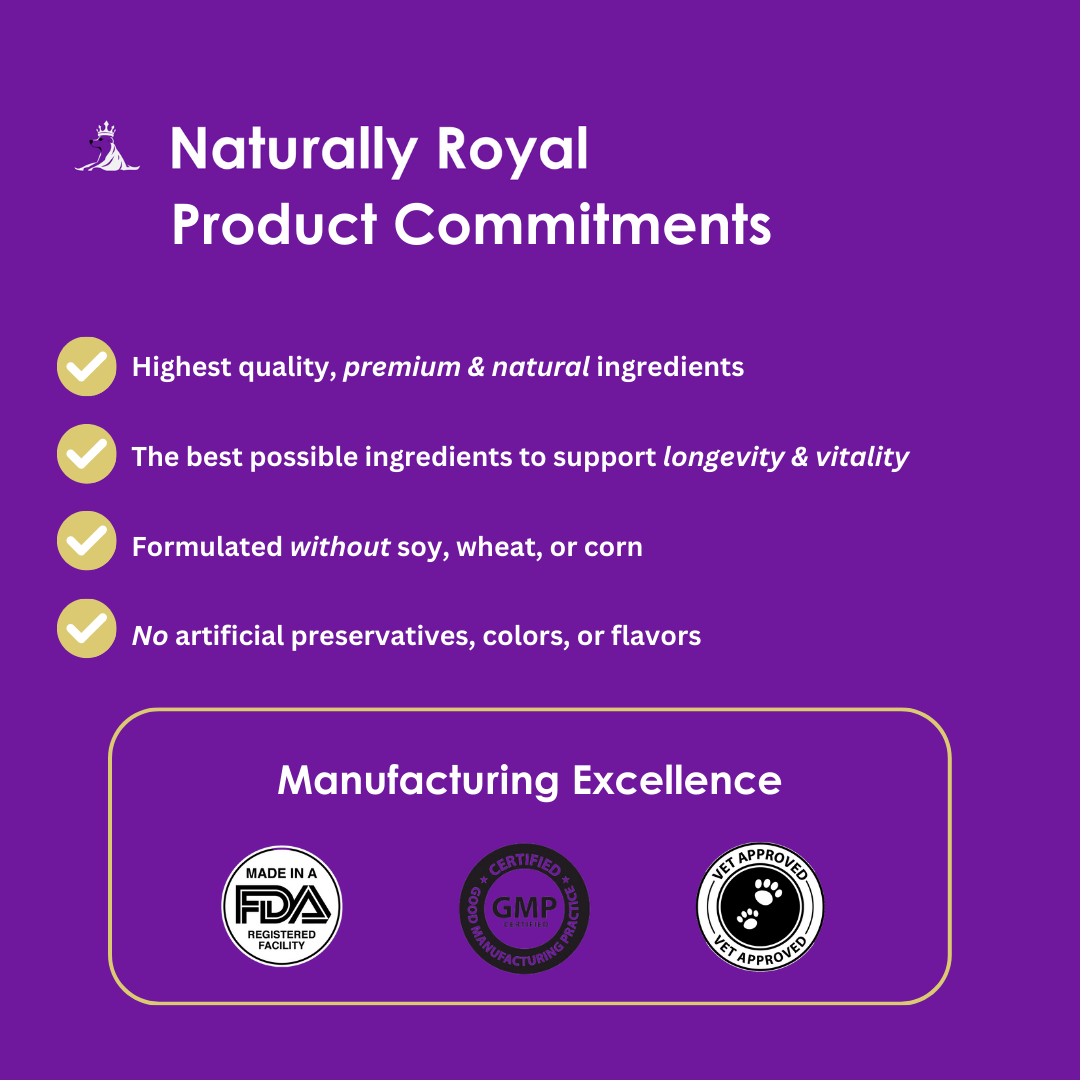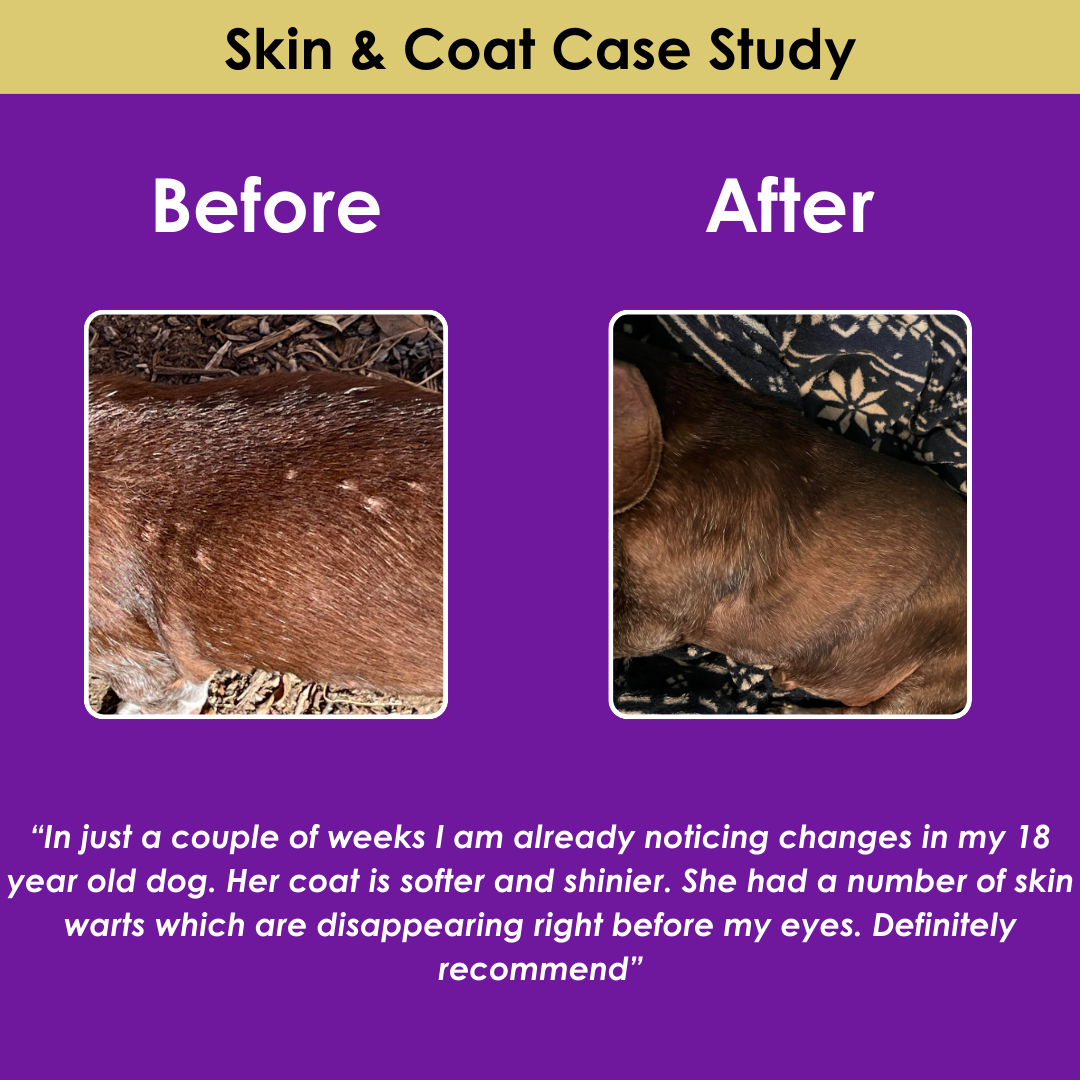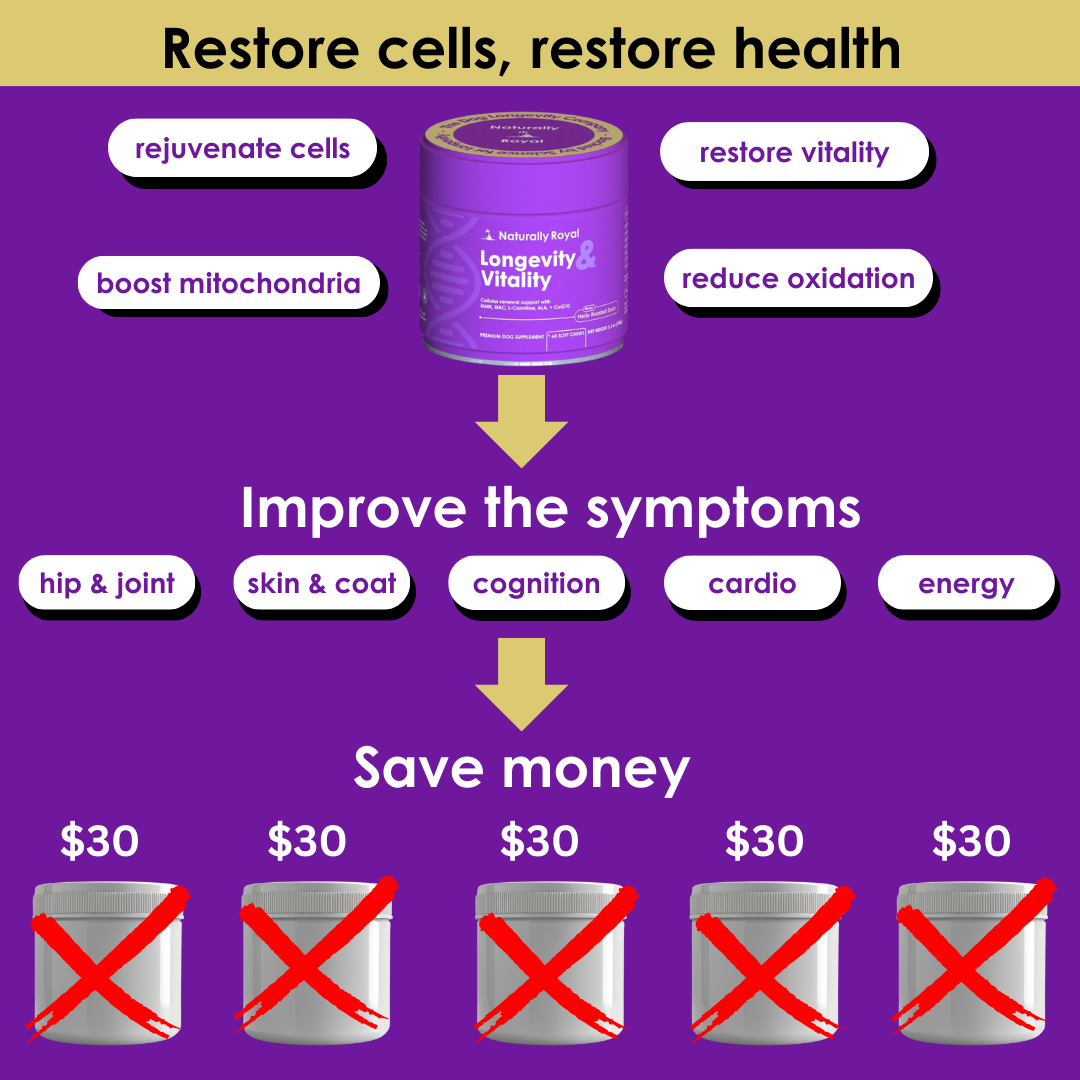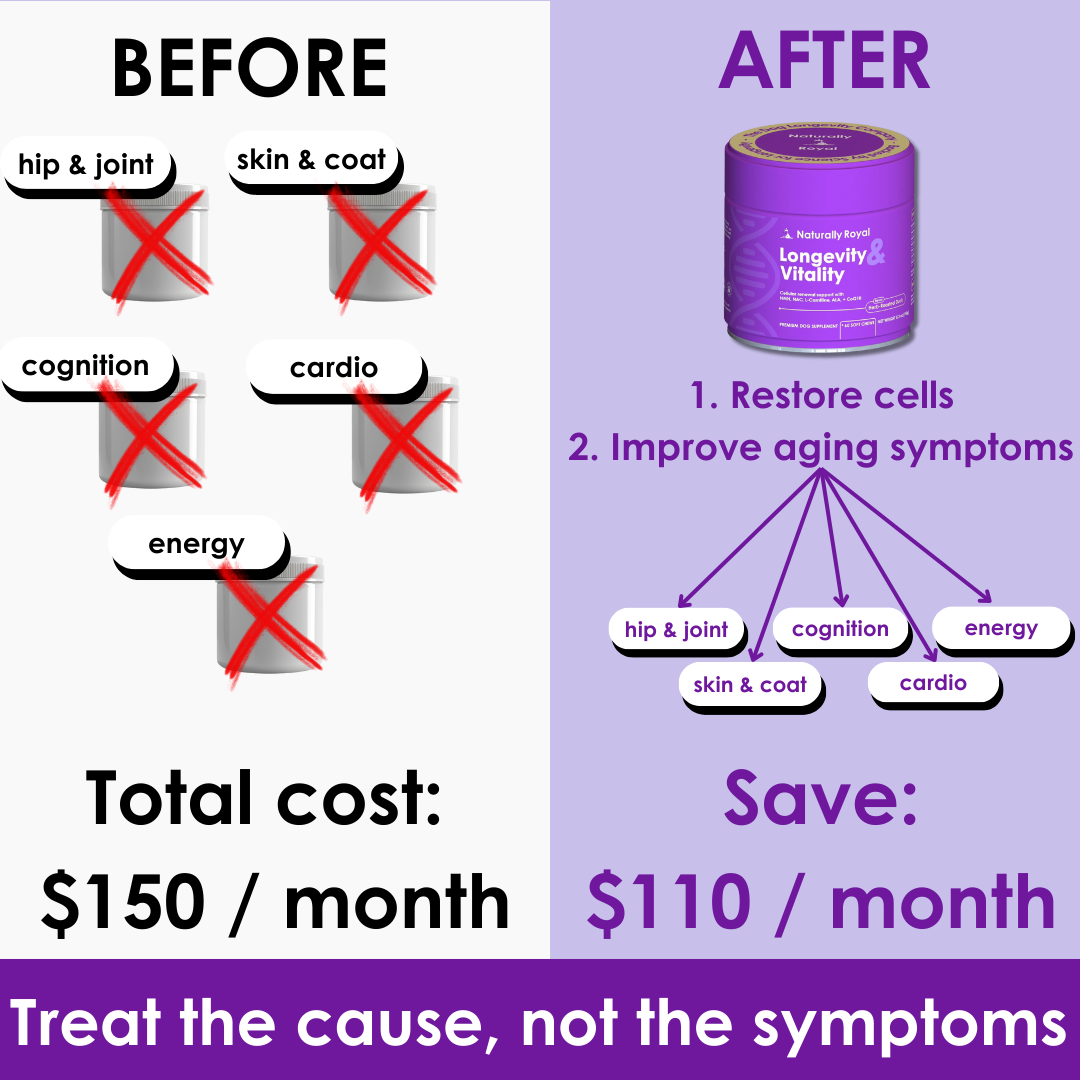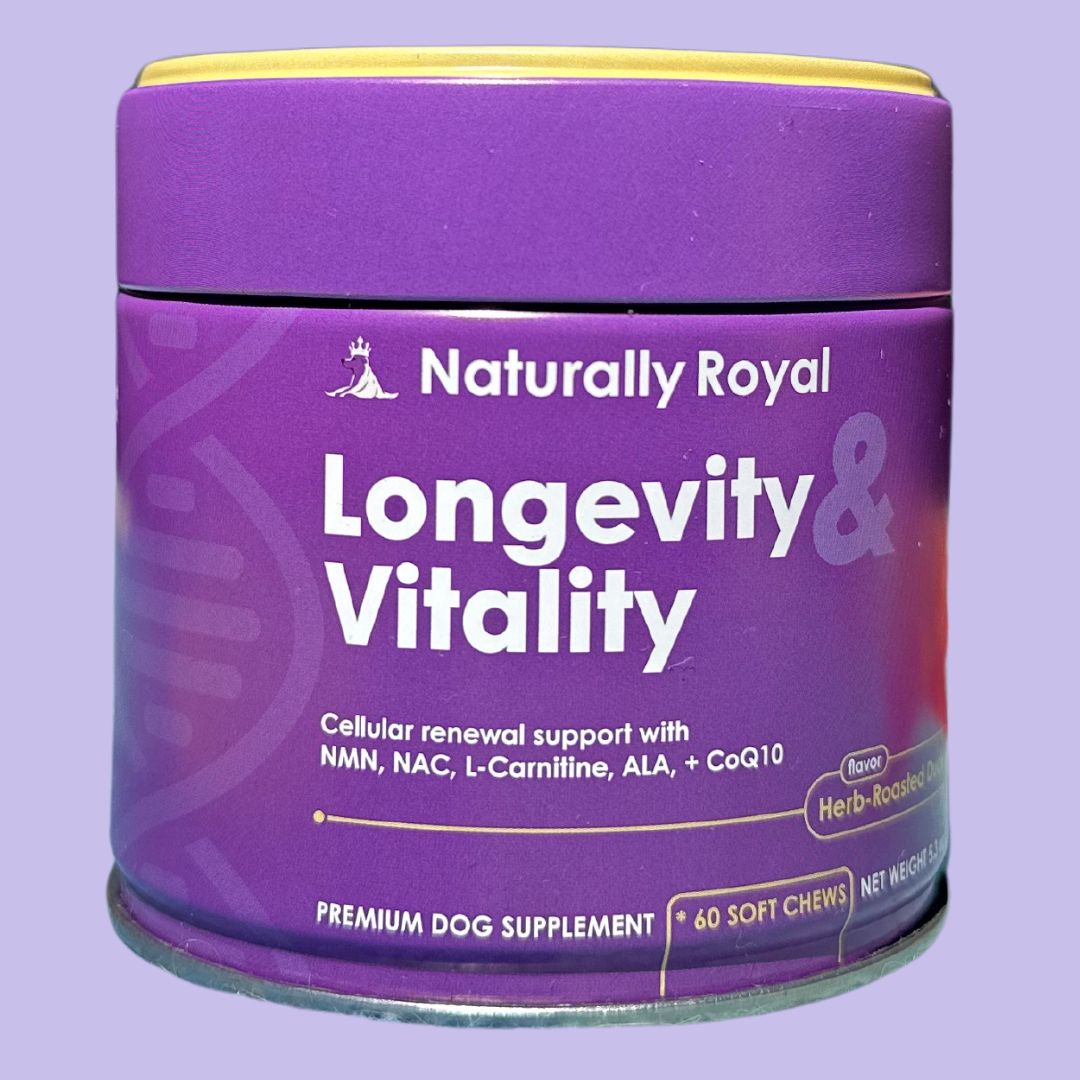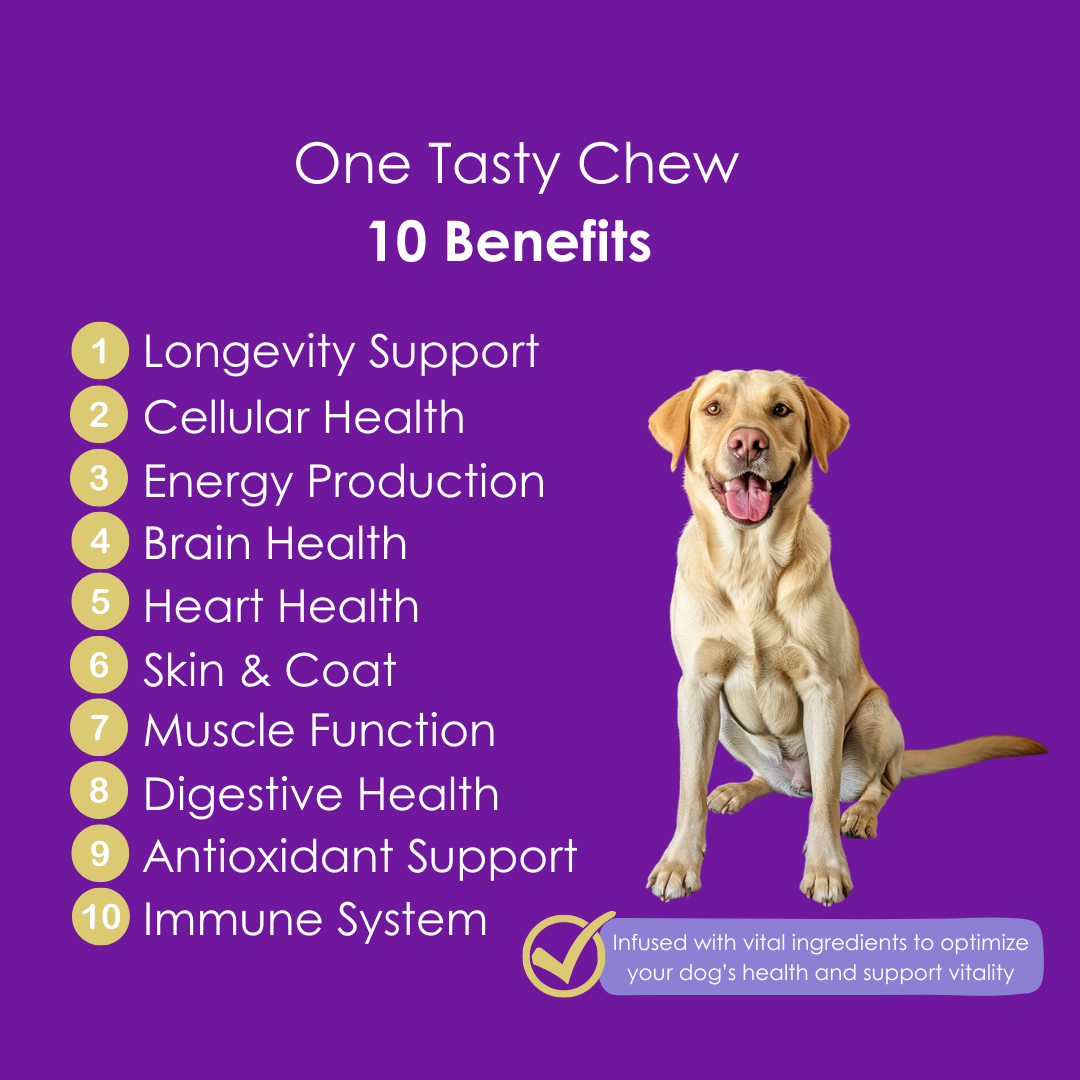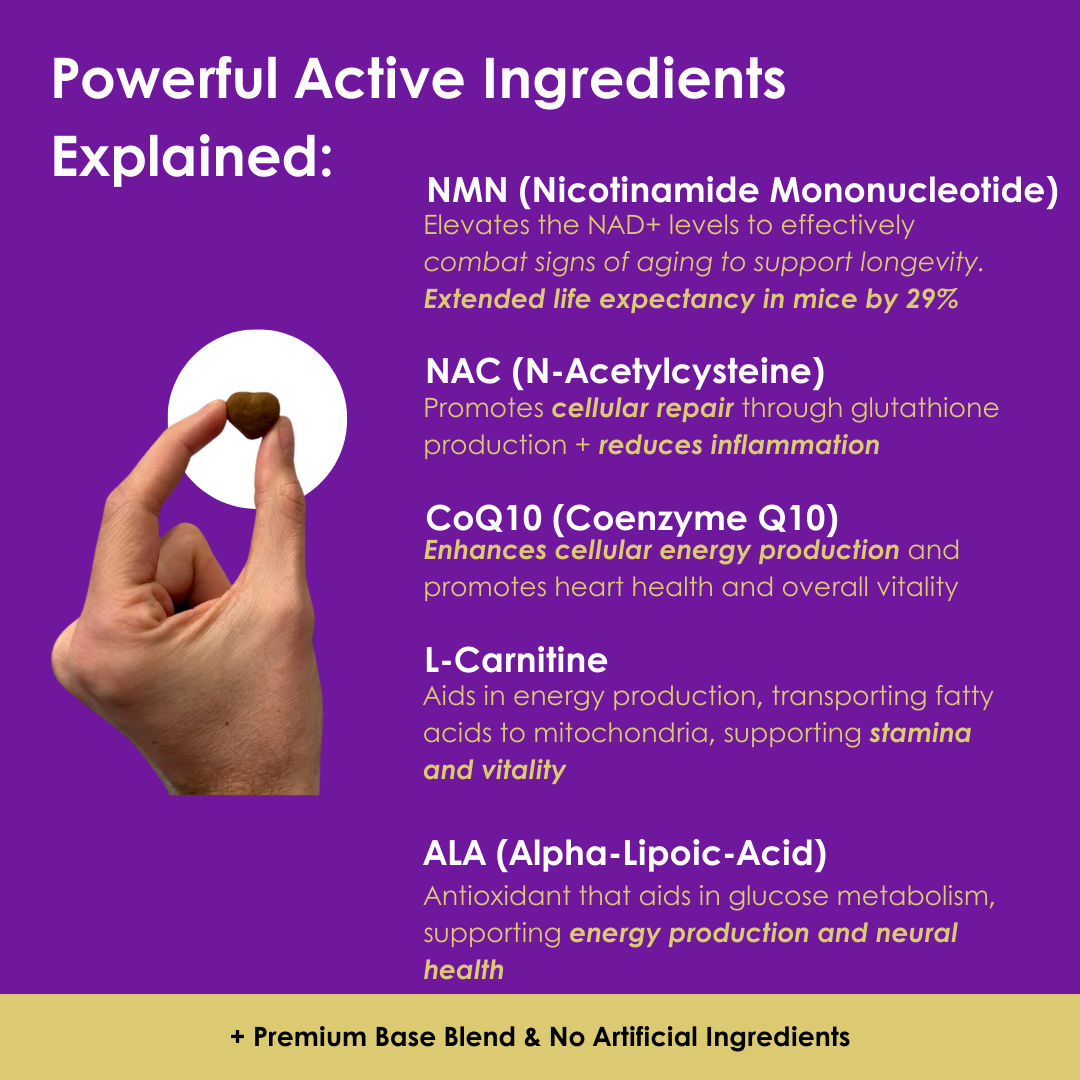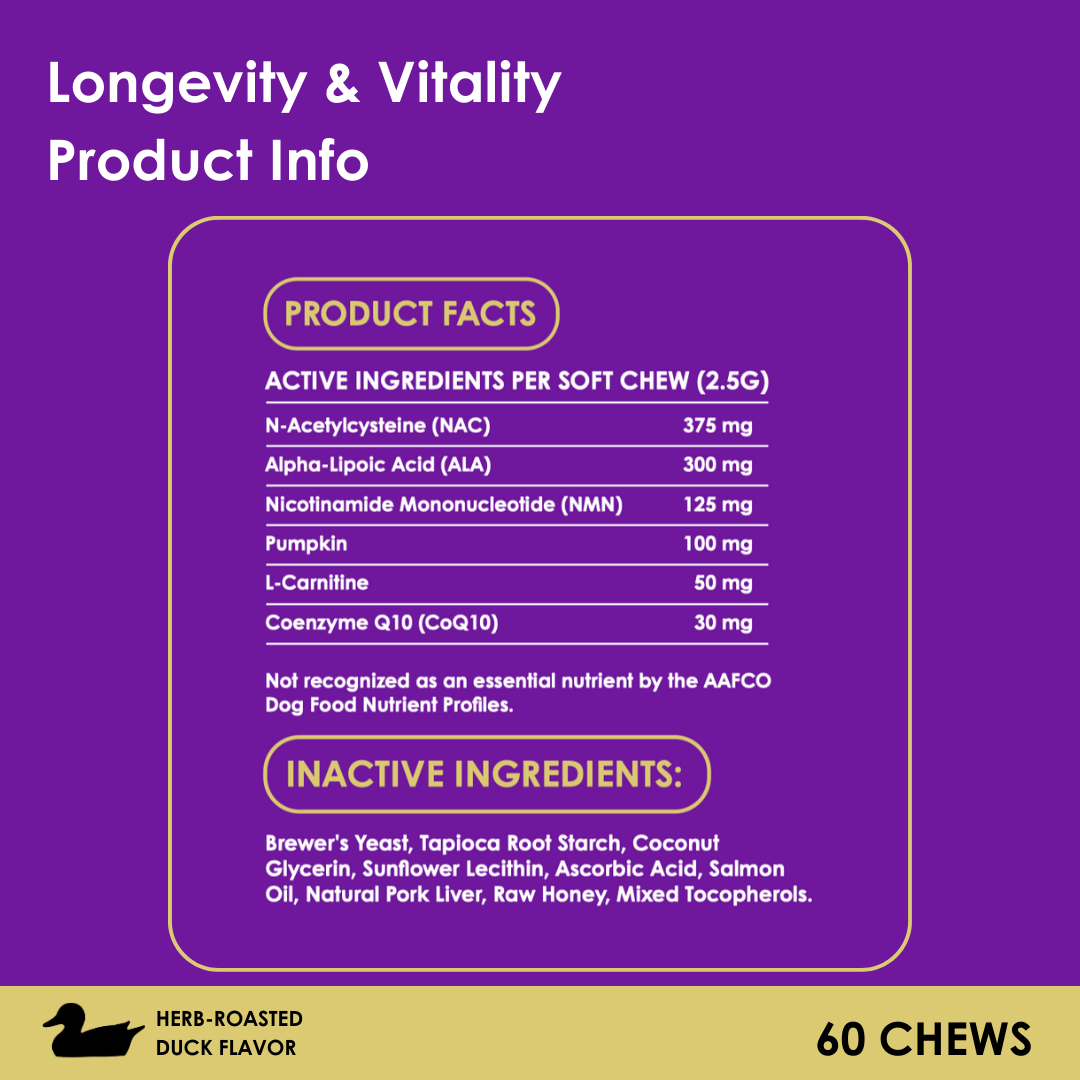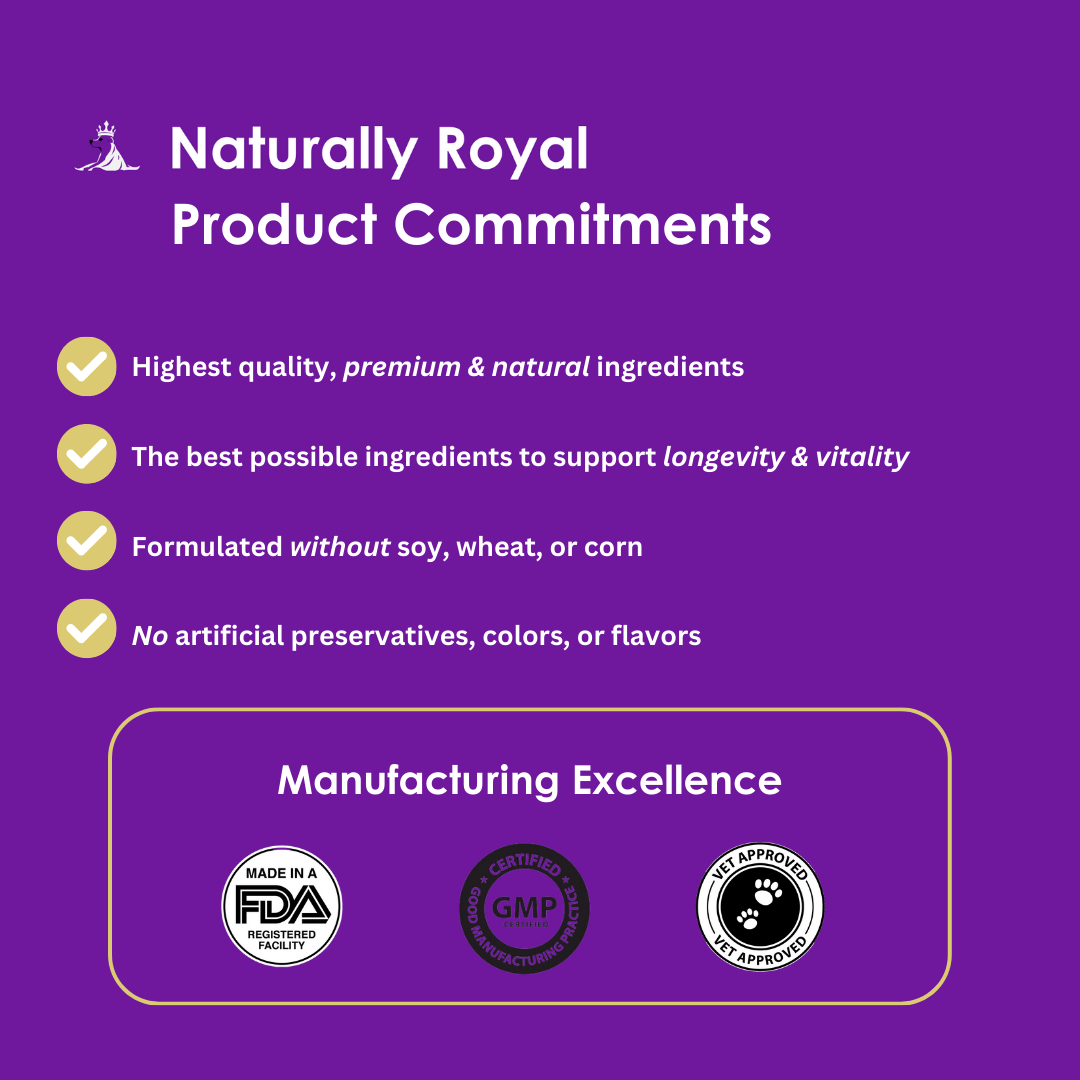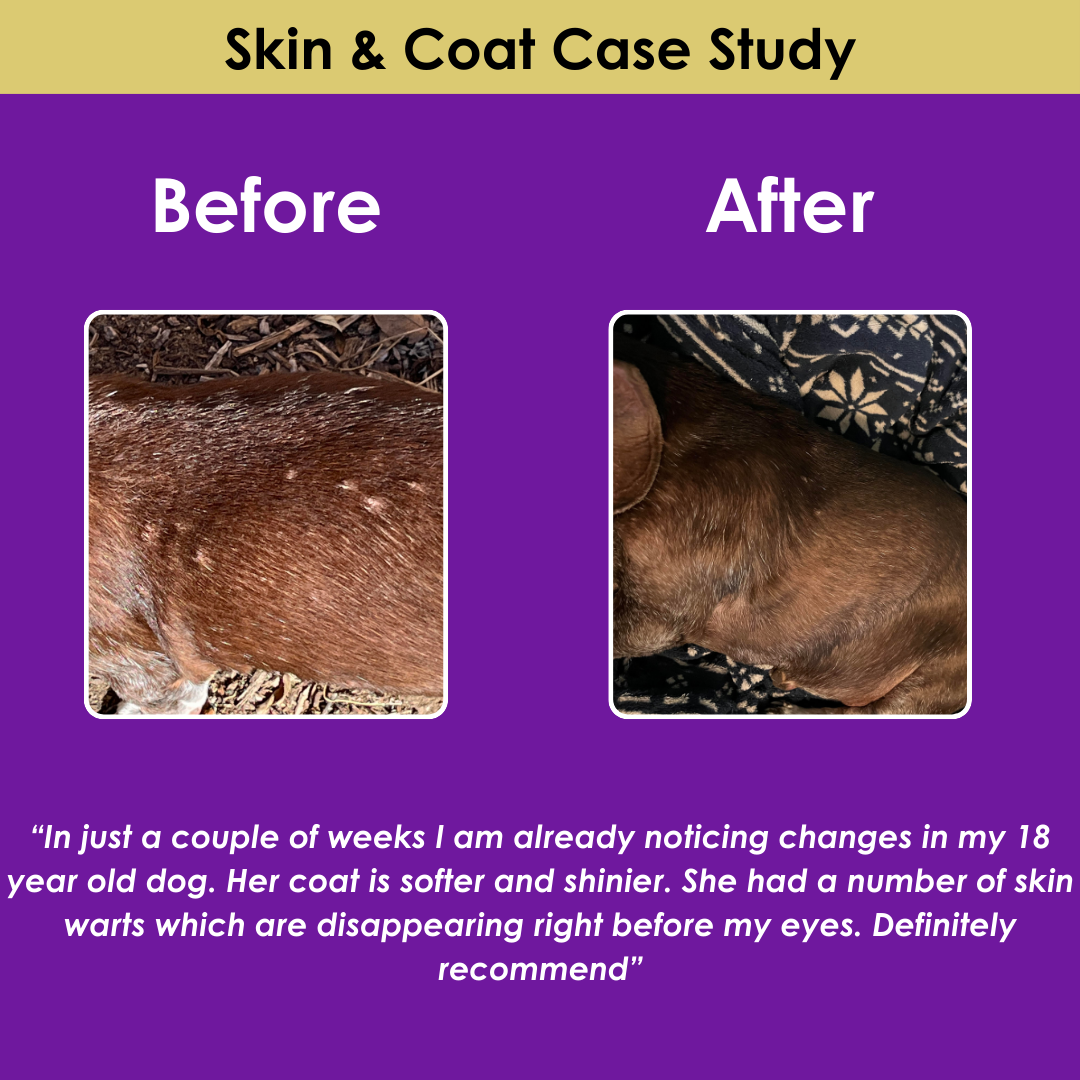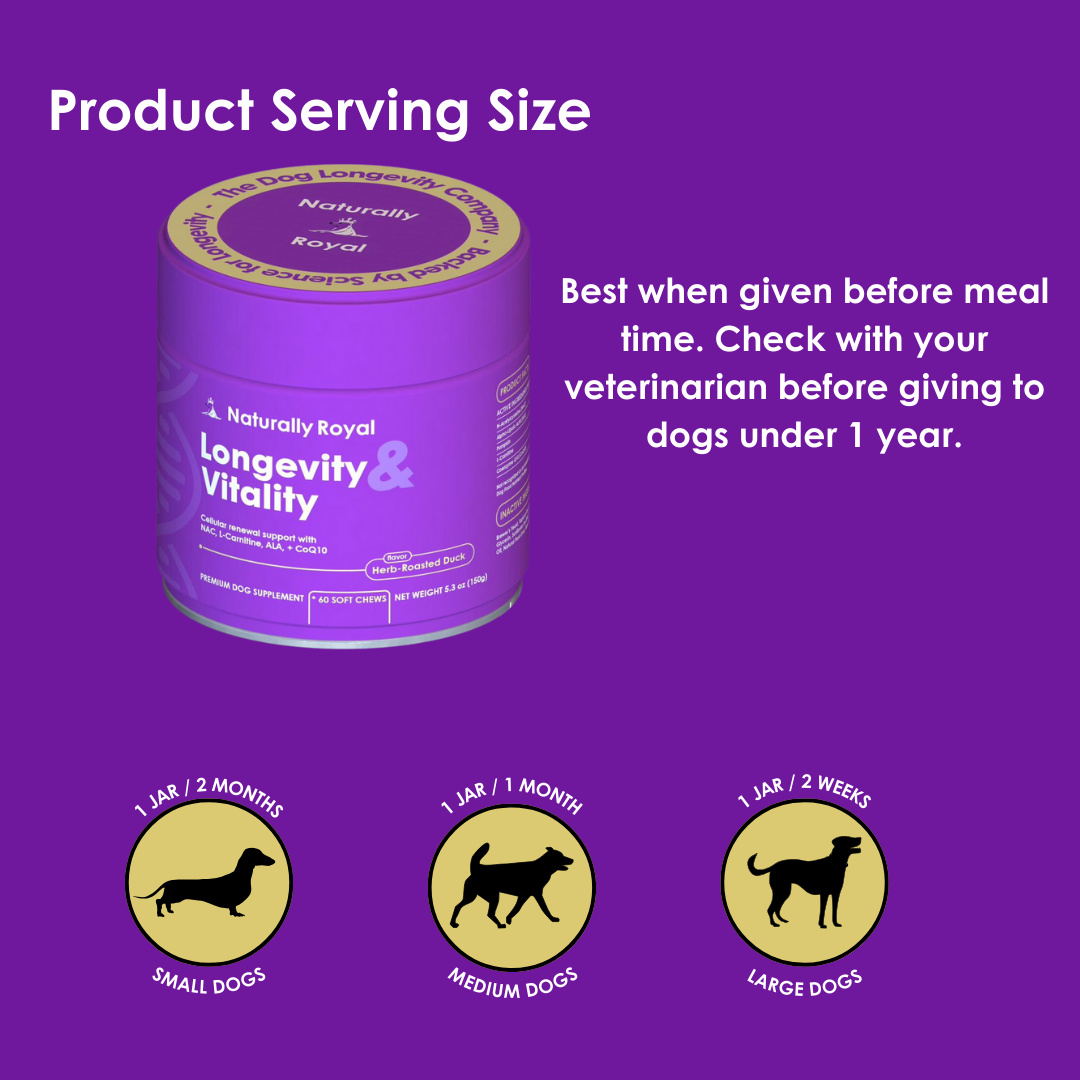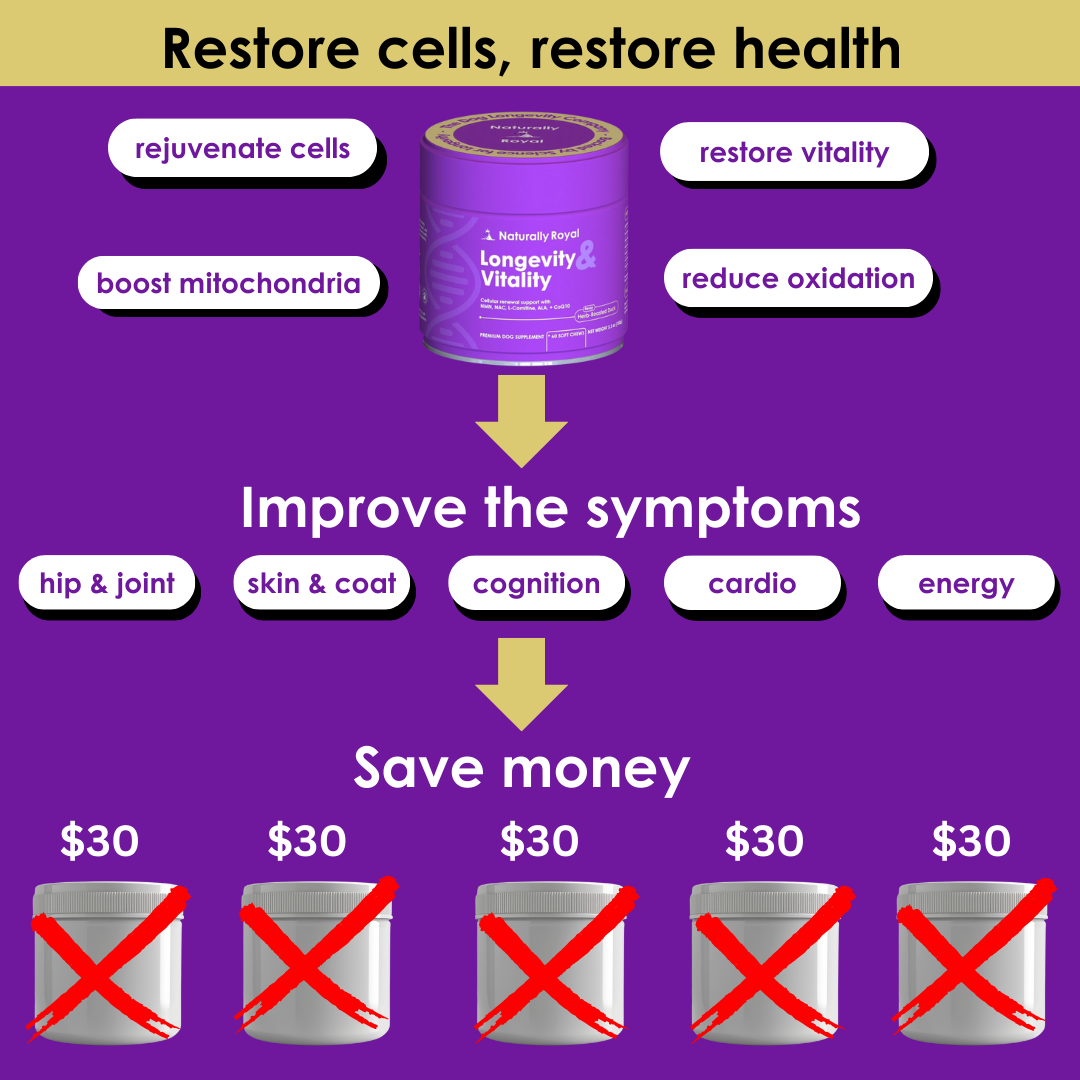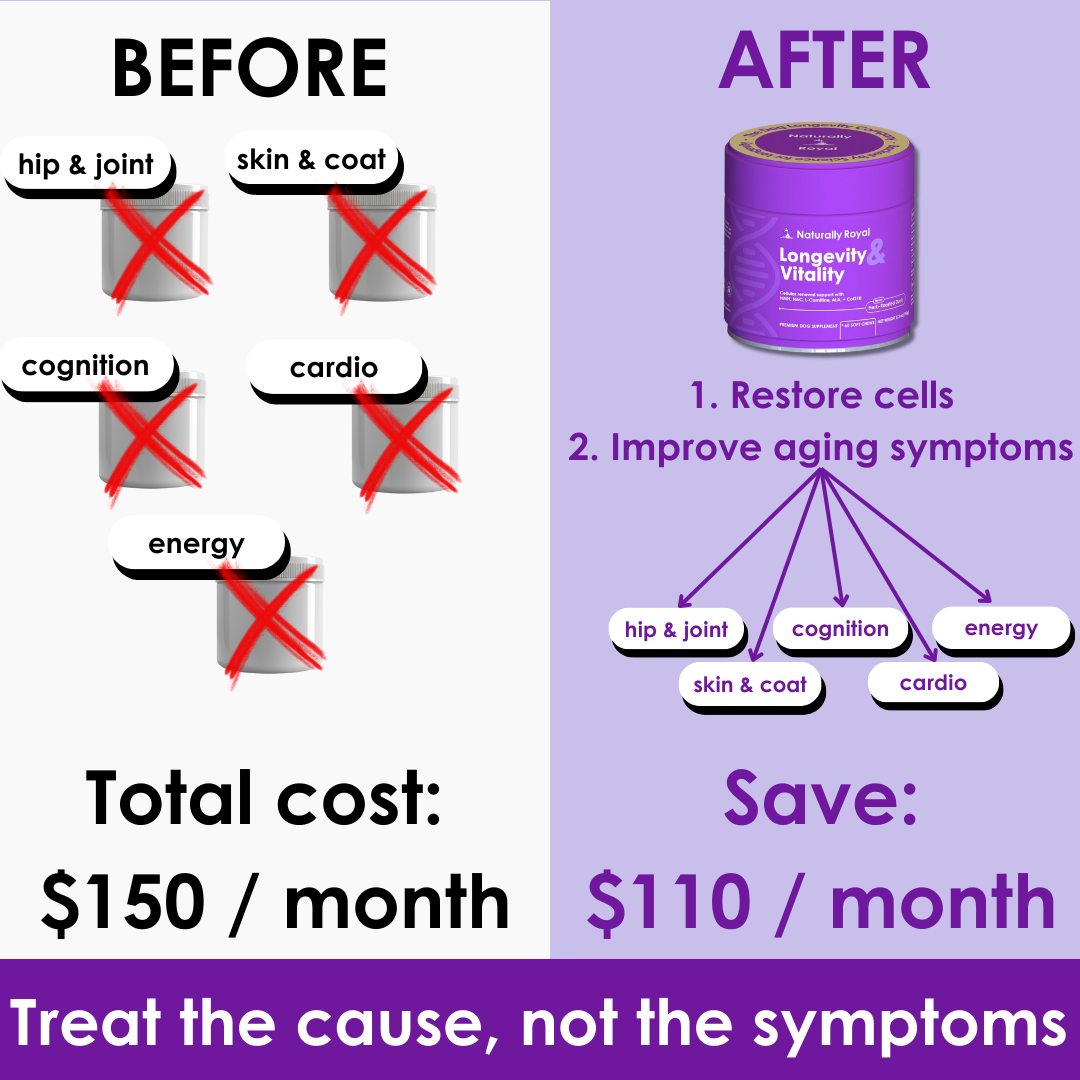Grain-Free Diets and Their Longevity Impact
Grain-free diets have gained significant attention in recent years as more pet owners seek alternatives to traditional grain-based dog foods. With many advocating for their potential health benefits, others have raised concerns about possible risks. Understanding the impact of a grain-free diet on your dog’s longevity requires careful consideration of its advantages, risks, and how it affects your dog’s overall health. Let's go over them:
What is a Grain-Free Diet?
A grain-free diet eliminates grains such as wheat, corn, rice, and oats, and instead uses other carbohydrate sources like potatoes, lentils, peas, or chickpeas. The goal of a grain-free diet is to provide a more "natural" diet, closer to what a dog’s ancestors might have eaten in the wild. Proponents of grain-free diets often argue that dogs, as descendants of carnivorous wolves, are not biologically suited to digest grains effectively.
The Benefits of a Grain-Free Diet
-
Improved Digestion: Some dogs may have allergies or sensitivities to grains, leading to gastrointestinal upset, bloating, or diarrhea. For these dogs, removing grains from their diet can help improve digestion and reduce inflammation, making them feel healthier and more energetic.
-
Allergy Relief: Grain-free diets may help dogs with certain food allergies or sensitivities. Though uncommon, some dogs can be allergic to grains, causing itchy skin, ear infections, or gastrointestinal issues. By switching to a grain-free diet, these symptoms may subside, improving their overall well-being.
-
Increased Protein: Grain-free diets often have higher protein content, which can be beneficial for active dogs that require more energy and muscle maintenance. Protein plays a vital role in maintaining strong muscles and supporting a dog’s metabolic health.
-
Weight Management: Since many grain-free diets replace grains with fiber-rich vegetables or legumes, they may aid in weight management by promoting satiety and preventing overeating. Obesity is a common issue in dogs, and managing weight is crucial for longevity.
Concerns and Risks of Grain-Free Diets
-
Nutritional Deficiencies: One concern about grain-free diets is that they can lead to nutritional imbalances. Grains provide important nutrients like fiber, vitamins, and minerals. Without careful formulation, a grain-free diet could result in deficiencies in essential nutrients such as certain B vitamins or minerals like magnesium and iron.
-
Dilated Cardiomyopathy (DCM): In recent years, the FDA has investigated a potential link between grain-free diets and an increase in cases of dilated cardiomyopathy (DCM) in dogs. DCM is a heart condition that affects the heart's ability to pump blood efficiently, leading to heart failure. While the exact cause of the link between grain-free diets and DCM is still under investigation, many experts believe it may be related to certain ingredients commonly used in place of grains, such as legumes.
-
Balanced Nutrition: It’s important to remember that not all grain-free diets are created equal. Some may lack the appropriate balance of nutrients, especially if not formulated by a reputable company with veterinary oversight. Just because a food is grain-free does not necessarily mean it is healthier or more nutritious for all dogs.
When to Consider a Grain-Free Diet for Your Dog
-
Allergies or Sensitivities: If your dog has been diagnosed with grain allergies or sensitivities, a grain-free diet may help alleviate their symptoms and improve their overall health.
-
Chronic GI Issues: Dogs that frequently suffer from gastrointestinal issues, such as bloating, diarrhea, or vomiting, might benefit from switching to a grain-free diet, especially if grain-based foods exacerbate their symptoms.
-
Weight Management: Grain-free diets with higher protein and fiber content can support weight management efforts, especially for overweight dogs. Maintaining a healthy weight is critical for promoting longevity, as it reduces the risk of obesity-related diseases like diabetes and arthritis.
-
Consultation with a Veterinarian: Before making the switch to a grain-free diet, it’s essential to consult with a veterinarian or a pet nutritionist. They can help determine whether a grain-free diet is appropriate for your dog and ensure that it provides the proper balance of nutrients to support their long-term health.
Grain-Free Diets and Longevity
While a grain-free diet can be beneficial for certain dogs, particularly those with allergies or sensitivities to grains, it’s essential to approach this diet with caution. A poorly formulated grain-free diet could increase the risk of nutritional deficiencies or contribute to heart issues like DCM. On the other hand, a well-balanced grain-free diet, designed with your dog’s unique health needs in mind, may help manage chronic conditions, improve digestion, and enhance their overall quality of life.
Ultimately, the key to promoting longevity through diet is ensuring that your dog’s food provides balanced, complete nutrition, whether or not it includes grains. Regular veterinary check-ups, careful monitoring of your dog’s health, and making adjustments to their diet as they age will all contribute to helping them live a longer, healthier life.
Conclusion
Grain-free diets offer potential benefits for dogs with allergies, sensitivities, or certain health conditions, but they also come with risks, particularly in relation to heart health. Whether or not a grain-free diet is right for your dog depends on their individual health needs and lifestyle. By working closely with your veterinarian and providing your dog with a well-balanced, nutritious diet, you can ensure that they thrive and live a long, fulfilling life.


